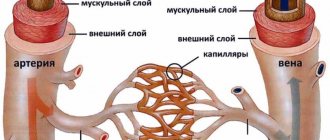People remember various information throughout their lives, such as names, places, dates, and important events. Usually we remember particularly significant events, and the least important ones are forgotten over time. The memory of some people is capable of remembering and reproducing an abnormally large amount of information.
A person with such a phenomenal memory can remember the smallest details of his life, for example, what he was wearing on a given day, where he went, who he talked to, what he ate. If you give such a person a date, his brain activity immediately begins to function and reproduce the events of that day. This condition is commonly called hyperthymesia.
Conducted academic surveys have made it possible to understand that people with exceptional memory are thoroughly able to describe about 85% of events that can be verified. Many of the subjects said that they replayed in their heads all sorts of memories of what happened to them at a certain moment throughout their lives, or thought about people they met on the street.
Someone “reads” a good book in their head that they read many years ago, someone reproduces the plot of a movie they liked, while others remember the lyrics of a piece of music they ever accidentally heard.
Interestingly, people suffering from this type of disorder can remember any moment in their biography, right up to infancy, but they cope with standard memory tests with great difficulty.
Hyperthymesia - what is it?
Hyperthymesia is a phenomenal autobiographical memory. In this state, a person can remember and easily reproduce any information related to him. And it doesn’t matter whether she has any significance in his life or not.
The word “hyperthymesia” translated from Greek means “supermemory”. It seems that remembering absolutely everything about yourself is an interesting and unusual gift. However, people suffering from hyperthymesia do not agree with this statement. They have impaired functions of sorting and forgetting information entering the brain. This means that they remember even what they sometimes want to forget forever.
Interesting! There are no more than 20 people in the world diagnosed with hyperthymesia.
Hyperthymesia is often called eidetics. This is a mistake, since eidetism is a state in which a person remembers an image, object or phenomenon in great detail. He can mentally "see" them, even while they are absent. Hyperthymesia is characterized by memorizing exclusively autobiographical data.
This phenomenon is also often confused with hypermnesia. This is the ability to remember and reproduce all the events happening around, including autobiographical data. The difference is obvious. In addition, hypermnesia is considered a temporary condition. It is provoked by a state of passion, hippomania, hyperthymia.
What is it?
Hyperthymesia, hyperthymestic syndrome (as hyperthymesia is less commonly called) is the ability of an individual to have amazing autobiographical memory .
That is, in this unusual state, a person is able to remember a huge amount of different information about events that happened to them in the past, even the least significant ones.
Translated from Greek, hyperthymesia means “super-memory” . Hyperthymesia sometimes prevents its owner from leading a normal, measured life, since this person’s brain is not able to control the process of remembering and forgetting events and phenomena.
However, some people are looking for a way to acquire hyperthymestic syndrome. It is believed that the planet is home to between four and twenty people with supermemories.
Causes
It is impossible to say exactly what causes the development of hyperthymesia. Scientists have only been able to create a number of theories to explain its appearance. They are conventionally divided into biological and psychological.
According to research, people with hyperthymesia have an enlarged temporal lobe and caudate nucleus of the brain, which are responsible for semantic and episodic memory. These disorders are caused by the brain's inability to forget received information. It turns out that he can no longer divide everything that happens to a person into significant and insignificant events for him.
Hyperthymesia or people with phenomenal memory
There are only a few dozen people on the entire planet who have phenomenal memories and can remember even the smallest details from their infancy, while most people have absolutely no memory of themselves at such an early age. The incredibly large amount of memory is due to a syndrome that is associated with the concept of hyperthymesia.
Hyperthymesia , or hyperthymestic syndrome, is the ability of a person to remember and reproduce an extremely high amount of information about his life. This ability affects only autobiographical memory. In medicine, they still cannot determine the status of this phenomenon and sometimes associate it with hypermnesia, that is, a similar ability that affects all types and forms of memory.
Let's find out more about this...
The term “hyperthymesia” appeared not so long ago, in 2006. A group of scientists then put forward a hypothesis about the characteristics of this disorder. Thus, a person who develops hyperthymestic syndrome spends an abnormal amount of time thinking about his past, resulting in the ability to recall certain events from his life.
While phenomenal memory developed with the help of mnemonic techniques is not considered a pathology, if we are talking about remembering the necessary information and data, then scientists consider hyperthymesia to be a deviation. Patients with this syndrome have uncontrolled and unconscious associations when seeing certain objects or dates, as a result of which the person remembers with accuracy any day of his life.
One famous person who develops hyperthymesia is Marilu Henner (born 1952), an American actress and producer.
As for Marilu Henner, whose phenomenon is now being actively studied by specialists, her earliest memories date back to the age of 18 months. On this day, as the woman recalls, she was playing with her brother. Interestingly, it was previously believed that a person cannot remember what happened to him before he was two years old.
After this event, she can talk about how she spent any of her days, what she talked about, what programs were on TV, etc. So, if an ordinary person remembers about 250 faces throughout his life, then Henner remembers thousands of them. From this, scientists also concluded that long-term memory is not selective, and all events that are processed by short-term memory go into long-term storage.
The process of remembering for Marilu Henner requires absolutely no effort. This, as experts say, is akin to an ideal video editor that can accurately recreate any fragment of a recording.
American Jill Price - she remembers absolutely all the events of her life, starting from the age of 14 - if you name an arbitrary date, Jill will reproduce what happened to her that day, what the weather was like, what important events happened in the world.
Her phenomenal abilities were confirmed by scientists at the University of California, Irvine in 2006. Since then, thanks to increased interest in research in this area, hyperthymesia has been confirmed in five more people.
In total, according to scientists, by 2014 it was possible to identify about 50 people with such incredible abilities to remember in detail any day of their lives. Scientists are currently unable to accurately identify the causes of this syndrome, but this may be due to the fact that in patients the temporal lobes and caudate nucleus in the brain are enlarged in size.
Neuroscientists study the characteristics of the brain. As part of the search for people with good memory, more than two thousand people were studied at the California Neuroscience Center. They were asked sixty questions, which only people who remembered everything could answer.
Due to the fact that there are very few people with hyperthymesia, there is practically no data on the occurrence of this ability. Some scientists consider absolute memory a myth and the desire of people to believe in their limitless capabilities. Professor of the history of psychology at the University of Groningen, Douwe Draaisma, writes in his “Book of Forgetting” that “most of our experiences leave no trace in the brain.”
Douet is also Fr. (Based on materials from “Het geheugen is ongezeglijk.” - de Volkskrant, 03.11.10, p. 48-49.)
Most of us, however, are not “lucky” to have absolute memory. And, while scientists are arguing whether hyperthymesia is a disease or a semantic feature of the body, we have the power to make our memory good, because no one disputes the possibility of training it.
Symptoms
The main symptom of hyperthymesia is an exacerbation of two types of memory: emotional and mechanical. The brain remembers some insignificant and completely unnecessary data, but at the same time it thinks worse. A person often does not understand the meaning of the information received and is delirious. He may also experience hallucinations that are related to what he remembered or learned.
general information
The term “hyperthymesia” was first used in the article “A Case of Unusual Autobiographical Memory” by E. Parker, L. Cahill, P. Tieger, and J. McGaw (Neurocase, 2006). The authors pointed to the defining characteristics of this memory disorder as "1) the individual spends an abnormal amount of time thinking about her own past, and 2) the individual is characterized by an exceptional ability to recall specific events from her own past." It has been noted that patients with hyperthymesia can remember with complete accuracy any moment of every day of their life and describe such memories as uncontrollable unconscious associations that arise, for example, when seeing a certain date in a text. The researchers also considered it necessary to warn about the need to distinguish hyperthymesia from other, predominantly non-pathological cases of exceptional memory associated with the use of various mnemonic techniques.
Diagnostics
Neuroscientists study phenomena such as hyperthymesia. Together with them, radiologists and electrophysiologists participate in making a diagnosis. They conduct a thorough study of the functioning of the brain, testing its ability to remember, sort and reproduce information from different time periods.
Most often, three types of diagnostic measures are carried out.
Motor functional tests
They help evaluate the functioning of nerve cells in the brain while a person is active, such as talking or moving. There are several such tests: for knowledge of languages, for pattern recognition, for movements, etc.
Radiographic scanning
Helps rule out the presence of structural abnormalities in certain parts of the brain. Conducted using MRI or CT.
Electrophysiological studies
They represent the study of the rhythmic activity of the cerebral region. An example of such a diagnosis is electroencephalography.
It is worth noting that research of this type is the fastest and most informative. In a split second, they make it possible to find out whether there are disturbances in the functioning of the cerebral cortex and its other parts.
Symptoms and manifestations
The main symptom of hyperthymesia is excessive exacerbation of mechanical and emotional memory.
The human brain remembers a lot of irrelevant information, and the quality of mental activity noticeably decreases.
Symptoms of the disease also include: misunderstanding of the meaning of information, delusional state, hallucinations against the background of heightened memory.
What phenomenon should not be confused with?
Hyperthymesia is often confused with eidetics . However, these are completely different states. Eidetism is the ability of a person to remember in detail the image of a previously seen object or phenomenon.
A person with eidetism seems to continue to perceive an object when it is no longer there.
Functionally, these two conditions are different from each other. With hyperthymesia, a person has supernatural autobiographical memory, and eidetism is characterized by a person’s ability to remember various visual images.
The concept of hypermnesia is also often confused with hyperthymesia . Hypermnesia is a person’s increased ability to remember and reproduce information. But, if in the case of hyperthymesia a person remembers only autobiographical information, then with hypermnesia people remember all the events that happened as a whole.
Hypermnesia can be caused by a state of passion, hippomania, hyperthymia. It is also worth noting that this condition is most often temporary, unlike hyperthymesia. Also, with hypermnesia, an abundance of memories about real impressions can be considered unproductive.
Hyperthymesia is often confused with phenomenal memory , but this neurological condition occurs more often in people with certain mental disorders than in absolutely healthy people. These disorders do not have to be severe. Usually these conditions do not interfere with normal life activities.
Phenomenal memory can be developed using mnemonic techniques; it is not a disease or syndrome, it is a completely healthy condition.
Examples from life
As mentioned above, there are up to 20 people with hyperthymesia living in the world. One of them is Australian Rebecca Sharrock. She remembers absolutely everything, even how, at the age of 7 days, her mother wrapped her in a pink blanket and held her close.
As a child, Rebecca thought that everyone had such a wonderful memory as she did. She changed her mind in January 2011 when she saw a TV report about hyperthymesia. Seeing the journalist’s admiration, the girl was very surprised.
Suspecting that something was wrong with their daughter, the parents wrote to the University of California, where they had been studying this syndrome for many years. After numerous tests, Rebecca was diagnosed with hyperthymesia in 2013.
The girl is not happy with this “gift” of nature. She complains that she reacts to remembered events in the same way as she did at the age when they happened. So, for example, if she remembers what happened when she was 3 years old, she will react accordingly with childish emotions. Because of this, Rebecca is often anxious, constantly nervous, and depressed. She also experiences headaches and insomnia.
And that is not all. Sometimes memories pop up in your head that you don’t want to remember at all. The only way a girl can protect herself from this is to constantly think about the good. And still it is not possible to solve the problem 100%.
Another example of people with hyperthymesia is the American actress Marilu Henner, who starred in the TV series Taxi. She loves to talk about an interesting moment in life. One of my colleagues announced the wedding date during lunch. Without a moment's hesitation, Marylou asked why she decided to get married on Monday. It was not difficult for her to remember in a matter of moments what day of the week it was. And this is 1 example out of thousands of similar ones.
Does this condition require treatment and why?
Hyperthymesia cannot be called a severe pathology requiring immediate surgical intervention . A person with this condition most often does not experience any disruption of brain activity, which means this syndrome does not interfere with his life.
In modern life, each of us would like to have an exceptional memory. But we should not forget that hyperthymesia is not a completely healthy condition of the human nervous system. Although this syndrome does not require immediate treatment, it can often interfere with the functioning of the person suffering from it.
Possessing super-memory, an individual is not able to forget any moments and events that are not always pleasant. For some people, hyperthymesia significantly disrupts their lives.
Many owners of this feature complain of headaches, insomnia and nervous tension. Hyperthymesia is not as funny as many may think. According to people who have this syndrome, it is very debilitating and difficult .
For many of us, it is not possible to have such absolute memory. And while there are battles about what exactly hyperthymesia is, a disease or a unique feature of the human body, we are able to develop and train our memory without harm to our health and psychological state.
Hyperthymia and hypothymia
In psychology, hypothymia the opposite of the state of hyperthymia . This disorder is characterized by long-term decreased mood in patients. Such patients are always sad, too self-absorbed, and perceive any failure as a personal tragedy.
Hypothyms do not laugh in response to a joke or a witty anecdote, practically do not smile at loved ones and acquaintances, and do not know how to rejoice. Typically, the state of hypothymia is a consequence of mental disorders and neuroses, long-term somatic illnesses, and a consequence of traumatic situations.
The states of hyperthymia and hypothymia can be combined in one patient with various nervous and mental diseases. In such cases, the effectiveness of treatment depends on the treatment of the underlying disease. With extrasomatic causes of these disorders and their benign course, psychotherapy helps well; during its sessions, specialists try to shift the extreme accents of mood and level out its background with the help of special exercises and techniques.
In case of pathologies of internal organs, states of hyper- or hypothymia self-liquidate with appropriate conservative or surgical treatment.
Video:
What it is?
Hyperthymia is a persistent human mental disorder, which is characterized by high mood and high social activity in patients.
A hyperthymic person has complacency towards society and the people around him, cheerfulness and inexhaustible optimism, and is always satisfied with himself and his achievements in the profession and in personal relationships.
The pathological aspect of this condition is that the positive perception of the world by such people often runs counter to real life circumstances; this is especially striking when hyperthymic people find themselves in unfavorable or tragic circumstances. They look at even the most serious problems “through rose-colored glasses,” that is, they cannot objectively assess the situation and find ways to resolve it.
Hyperthymia includes:
- euphoria - a feeling of energy uplift and a surge of physical strength that you immediately want to invest in some business or work;
- complacency, characterized by a permissive attitude towards any realities of life, the desire to observe the situation with detachment and indifference;
- ecstasy is a feeling of intense emotional pleasure about what is happening and (or) about oneself.
Manifestations of hyperthymia can be temporary (during alcohol or drug intoxication) and accompany a number of mental illnesses or organic lesions of the central nervous system. Signs of this disorder usually include:
- high self-esteem and selfishness;
- exaggeration of one's abilities, talents and achievements;
- acute denial of any critical assessments from others, manifestations of anger and aggressiveness in response to them;
- difficulties in relationships with colleagues and relatives, constant conflicts with them,
- lack of flexibility in social contacts and the ability to adapt to the demands of society;
- unreasonable manifestations of gaiety, loud inappropriate laughter;
- narrowing the range of interests, the scope of knowledge, reluctance to learn new things;
- getting stuck in social activities at the expense of other activities;
- uncontrollable talkativeness, “jumping” and confusion of ideas and thoughts;
- lack of empathy (sympathy) towards loved ones, tragic world or local events (terrorist attacks, earthquakes, murders, epidemics, etc.);
- inappropriate behavior in disputes and conflicts - bright outbursts of aggression, unmotivated deviant or even antisocial actions.











